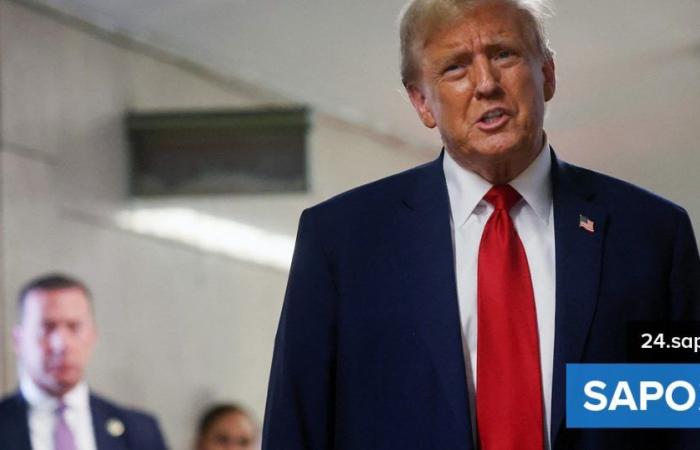The decision could have far-reaching repercussions for the Executive Branch, but also for the multiple legal problems facing Trump, candidate for the November presidential elections.
“We are writing a rule for posterity,” said Judge Neil Gorsuch, one of three conservative justices appointed by the former Republican president.
By accepting the case, the Supreme Court postpones the start of a trial in which Trump is accused of conspiring to change the results of the 2020 elections, won by Democrat Joe Biden.
Special Counsel Jack Smith presented the case against Trump, 77, in August and pushed for the trial to begin in March. But Trump’s lawyers have filed several motions to delay it, including one in which they argue that a former president enjoys “absolute immunity.”
The majority of Supreme Court justices, who are expected to issue their ruling by the end of June, do not appear inclined to support the Trump team’s claim.
But at least four of the court’s nine justices appear to be at odds with a lower court ruling that stipulated that a former president does not enjoy “absolute immunity” from criminal prosecution after leaving office.
The Chief Justice of the Supreme Court, conservative John Roberts, said so to Michael Dreeben, who represented Special Prosecutor Smith.
“As I read it, it simply says, ‘a former president can be sued because he is being sued,'” Roberts said. “Why shouldn’t we send (the case) back to the court of appeal or issue an opinion that makes it clear that this is not the law?”
Referring the case back to the lower court for further review would almost certainly delay Republican Trump’s election conspiracy trial until after the November election, in which he will once again face Democrat Joe Biden.
Justice Samuel Alito, another conservative, argued that if immunity is denied, there is nothing to prevent a president from pardoning himself in the future for “anything he has possibly been accused of having committed.”
Justice Clarence Thomas, also a conservative, asked Dreeben why there had been no prior proceedings against a former president. The reason “is that there were no crimes,” he replied.
Dreeben added that giving former presidents “absolute immunity” would “give them immunity” from criminal liability for “bribery, treason, sedition, murder” and, in Trump’s case, “for conspiring to use fraud to overturn the results of an election and remain in power”.
John Sauer, Trump’s lawyer, told the court that “without presidential immunity from criminal prosecution there can be no presidency as we know it.”
“Any current president will face de facto blackmail and extortion from his political rivals while in office,” Sauer estimated.
The Supreme Court’s three progressive justices—Sonia Sotomayor, Elena Kagan, and Ketanji Brown Jackson—and, to some extent, conservative Amy Coney Barrett, have rejected blanket presidential immunity.
“Wouldn’t there be a significant risk that future presidents would feel emboldened to commit wanton crimes?” Jackson asked.
Kagan asked whether a president who “sells nuclear secrets to a foreign adversary” should be immune from prosecution. “What do you think if a president orders the military to carry out a coup d’état?”
Sauer responded that these hypotheses “sound very bad”, but “if it is an official action, there needs to be a political trial and a conviction” by Congress before a president can be prosecuted.
Trump complained to journalists in New York before entering a court trying him for falsifying business records to hide a payment to Stormy Daniels, a pornographic actress, with the aim of buying her silence for an alleged extramarital affair before the elections. 2016.
The former president said that the judge presiding over this case did not allow him to attend the hearing at the Supreme Court. “I would love to be there, I should be, but this judge didn’t allow it,” lamented the Republican presidential candidate. Without immunity, “a person becomes a ceremonial president,” he added.
In addition to the case in New York, Trump also faces charges over the 2020 elections in the state of Georgia and was charged in Florida for alleged improper management of classified documents after leaving the White House.
Tags: Supreme Court skeptical Trumps presidential immunity News
--





